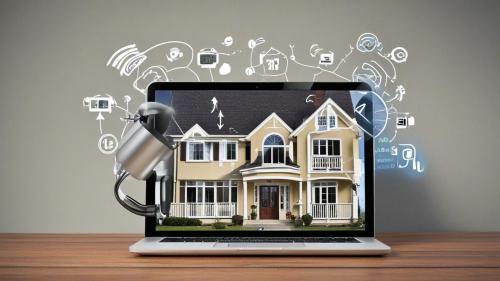In our rapidly advancing world, where technology evolves at the speed of light, our approach to home safety must adapt and advance. Although the allure of new gadgets can be captivating, it's important to dissect what truly matters in home security—a seamless fusion of technology, knowledge, and practicality.
**A Smart and Secure Home: Balancing Convenience with Safety**
Smart home devices are undoubtedly convenient. With just a swipe or a voice command, we can lock doors, adjust thermostats, or even feed our pets. Yet, convenience must not come at the cost of security. While smart locks and cameras are fantastic innovations, they require diligent cybersecurity measures to ensure our homes are not vulnerable to digital intrusions.
A common oversight is the failure to update device firmware. Manufacturers often release updates to fix security vulnerabilities, and ignoring these updates can leave smart home devices susceptible to cyberattacks. Remember, just as you would lock your doors physically, it's crucial to lock them digitally too.
**Community Vigilance: An Age-old Practice Enhanced**
One of the most effective strategies in promoting home safety is surprisingly old-school: community involvement. Block Watch Programs once relied heavily on neighborhood meetings and direct communication, but now, platforms like Nextdoor and community-focused social media groups facilitate real-time information sharing.
Neighbors who communicate effectively are more likely to notice and report suspicious activities. Additionally, knowing your neighbors creates a community with a shared sense of responsibility for each other's safety.
**The Psychology of Security: Trust and Assurance**
The psychological impact of feeling secure in one's home cannot be understated. It's not just about physical devices and deterrents but achieving peace of mind. Your home should be your sanctuary — a place where anxiety dissipates, and safety prevails.
This psychological aspect explains why some people invest in high-end security systems beyond standard measures. While it’s essential to have alarms and surveillance, sometimes the true benefit is the reassurance they provide, rather than the security itself. Therefore, understanding personal needs and responses to different security measures is vital.
**The Role of Education in Home Security**
Behind every secure home lies a foundation of knowledge. Homeowners must educate themselves about potential threats and best practices for safety. Workshops, online courses, and community outreach programs can enhance awareness about current security threats, from porch pirates to online scams targeting vulnerable parts of a smart home.
Education also extends to understanding one's home layout and identifying potential security weak points. A thorough assessment of doors, windows, and Wi-Fi networks can spotlight vulnerabilities, offering a roadmap to fortification and reassurance.
**Anticipating Future Threats: A Proactive Approach**
Thinking ahead is an invaluable asset in maintaining home security. As technology progresses, new threats will inevitably emerge. Machine learning and artificial intelligence are double-edged swords; where they can enhance security, they can also be used to optimize criminal tactics.
Staying informed about technological advancements and the associated risks can prepare homeowners for future hazards. Security is not simply a set-and-forget feature, but a dynamic component of living in a high-tech world.
Ultimately, home security in the age of smart technology is about striking a balance between adopting innovative solutions and adhering to fundamental principles of safety. The goal is not only to protect our physical environment but to foster peace of mind in our digital age, ensuring that our homes remain our sanctuaries amidst a rapidly evolving world.
Rethinking home safety in the age of smart technology




